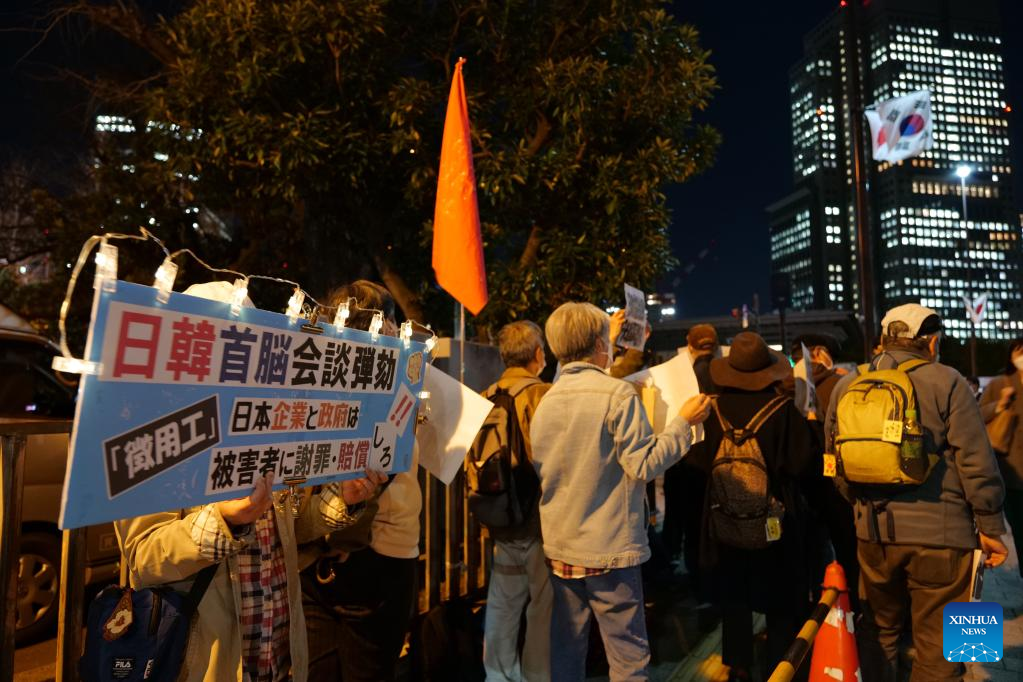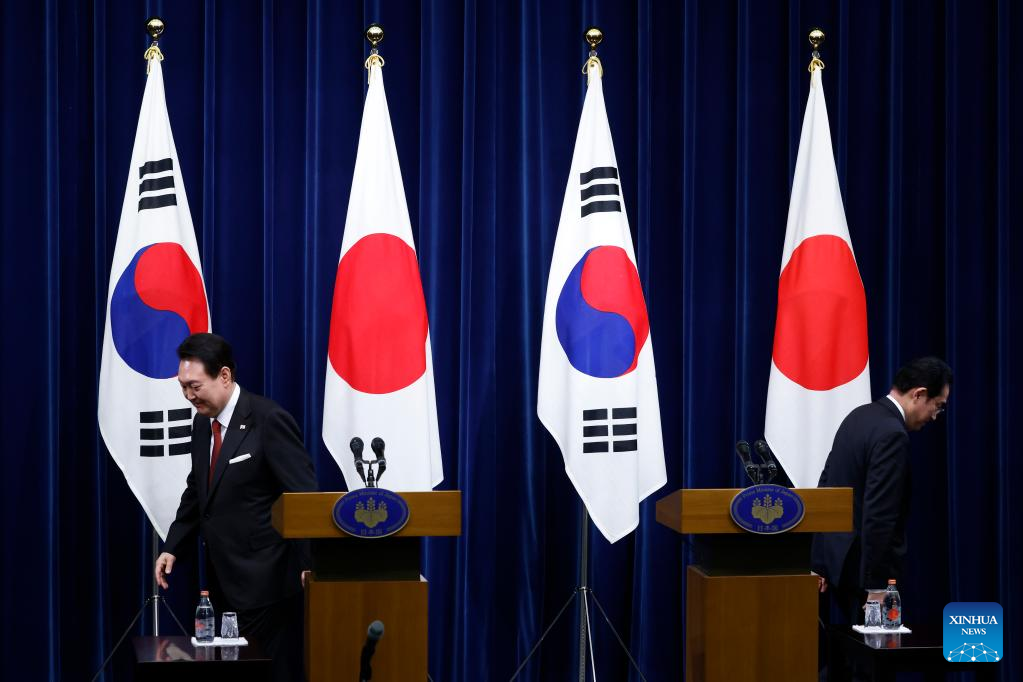
People gather in front of the Japanese Prime Minister's Official Residence to protest against the meeting between Japanese Prime Minister Fumio Kishida and South Korean President Yoon Suk-yeol in Tokyo, Japan, March 16, 2023. Japanese Prime Minister Fumio Kishida met with visiting South Korean President Yoon Suk-yeol here on Thursday, amid waves of opposition and criticism over ignoring history. (Xinhua/Li Guangzheng)
TOKYO, March 16 (Xinhua) -- Japanese Prime Minister Fumio Kishida met with visiting South Korean President Yoon Suk-yeol here on Thursday, amid waves of opposition and criticism over ignoring history.
At the Prime Minister's Official Residence, Kishida met with Yoon, who is on a two-day visit to Japan. It marked the first time in nearly five years that leaders of the two countries have held a summit in Japan.
Yoon's visit followed his step to resolve the dispute over wartime laborers. South Korea earlier announced a plan that a local foundation would gather funds for South Koreans forced to work for Japanese companies during World War II and pay compensation the South Korean court judgment demanded from Japanese companies.
Yoon's plan has been triggering resentment at home and came under strong opposition in Tokyo as well.
In front of the official residence, crowds of Japanese gathered on Thursday evening to oppose the two countries' joint military alliance in disregard of history, holding up placards that read "Japanese companies and the government should apologize and compensate for forced labor" and "No to the Japan-U.S.-South Korea military alliance."
"It is totally unacceptable for the Japanese and South Korean governments to completely resolve the historical issue through an inter-governmental agreement, ignoring the forced laborers and the victims," said a protestor.
"The Japanese government not only ignores historical facts but also intends to join hands with South Korea and the United States to build a military alliance and go to war again. We firmly oppose and protest," said another local citizen.
Analysts here believe that the improvement of Japan-South Korea relations lacks public support, while sentiments against each other still occupy the mainstream in the two countries.
It is difficult to bridge the huge gap between the two countries on such historical issues as forced labor and "comfort women" through formal "shuttle diplomacy" by the leaders alone, experts said. ■

Japanese Prime Minister Fumio Kishida (R) and South Korean President Yoon Suk-yeol (L) walk off stage after a press conference in Tokyo, Japan, March 16, 2023. Japanese Prime Minister Fumio Kishida met with visiting South Korean President Yoon Suk-yeol here on Thursday, amid waves of opposition and criticism over ignoring history. (Kiyoshi Ota/Pool via Xinhua)



